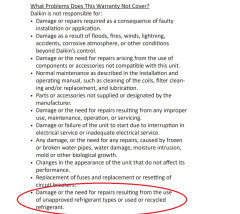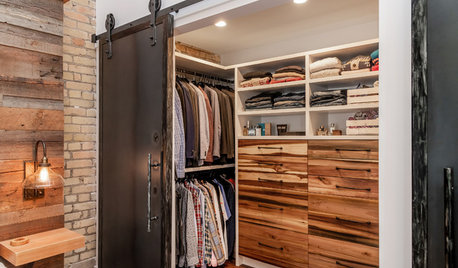Bryant vs Goodman vs Ruud
We moved into a home with a 20+ year old HVAC system and were considering an upgrade before summer. It's a 2800 ft/sq home (our first) and will be our first major upgrade to the home. We got a few quotes but I was hoping you all could weigh in and lend your expertise.
The units are Bryant 127TAN048C0W + 820TB60090V21 system with a Goodman GCVC960804CN + GSXC7048 and a Ruud R962V0855A21M4SCAP + RA14AZ42AJ1NA. The estimates are $13500 for the Bryant, $14000 for the goodman and $16225 for the Ruud.
Bryant 127TAN048C0W + 820TB60090V21
- Cooling (AC): The model number seems to be a 4-ton unit.
- Heating (Furnace): I couldn't find the BTU rating on this, and interestingly, the estimator here never asked for our square footage. 🤔
Ruud R962V0855A21M4SCAP + RA14AZ42AJ1NA
- Cooling (AC): The RA14AZ42AJ1NA model has a tonnage of 3.5 tons. This capacity is slightly less than the Bryant and Goodman models.
- Heating (Furnace): The R962V model number is a high-efficiency furnace with a variable speed blower, 80,000 BTU
Goodman GCVC960804CN + GSXC7048
- Cooling (AC): The GSXC7048 model is a 4-ton, similar to the Bryant system
- Heating (Furnace): The GCVC960804CN furnace has a heating capacity of around 80,000 BTU, with high-efficiency and a variable-speed blower
So far, my armchair research suggests installation is 90%, if not more, of the reliability. The Goodman quote came from a trusted family friend's recommendation. The Ruud is from the same tech. The Bryant came from a Yelp find.
If budget isn't the main concern, rather functionality, quality and reliability, which of these would you go with? I am leaning towards the Goodman, seems like a decent value and tech for the model numbers listed, but I have read some concerning reviews online about Goodman's reliability. We live in a moderate temperature with relatively cold winters (< 30º F for a few months).
Any help would be much appreciated!
Comments (10)
Charles Ross Homes
last monthThe three brands you are considering would all be categorized in the "basic builder" category in my opinion. The more important consideration would be the competency of the installer. It is indeed more important--and more difficult-- to find a competent replacement contractor than it is to find a competent new installation contractor.
Related Professionals
Atlanta Home Automation & Home Media · Birmingham Home Automation & Home Media · Boynton Beach Home Automation & Home Media · Brockton Home Automation & Home Media · Evanston Home Automation & Home Media · Richardson Home Automation & Home Media · Rowland Heights Home Automation & Home Media · Waukegan Home Automation & Home Media · Wellesley Home Automation & Home Media · Weymouth Home Automation & Home Media · Grand Haven Home Automation & Home Media · Batavia Fireplaces · Evergreen Park Fireplaces · Lake Arrowhead Fireplaces · Crestwood FireplacesCharles Ross Homes
last monthHere's a link for consumers who want an update on the refrigerant phase down without the warped views or political slant:
https://grummanbutkus.com/blog/refrigerant-phase-downs-what-you-need-to-know/
mike_home
last monthThe Bryant condenser you listed is a mid range Preferred model. The Legacy is the builder's grade, the Evolution is the very expensive premium equipment. The furnace is also a Preferred model but it is rated for 80% efficiency. In a cold climate like yours I recommend you upgrade to a 95%+ efficiency model. Installation costs will be higher but you should recoup the cost on lower gas costs and possibly a energy savings rebate.
The Goodman is nice equipment, but I don't know about the long term reliability. The Rudd is over priced for a single stage AC condenser. The furnace seems to be a lower tier product. There are better ways to spend $16,225.
I will assume the quotes are based on the sizes of the current equipment and no one is doing load calculations and inspecting the size of the duct work. Proper installation is very important. Here are some questions you need to ask:
- How did you determine the sizes you quoted for my house?
- Have you measured the duct work for proper air flow?
- What thermostat will be included?
- Does include a 4 inch media filter and if so what is the filter size?
- Will the condensate drain a type I will be able to clean and maintain myself?
- How long are the labor and parts warranties?
- How much do you charge for preventative maintenance?
- Do you offer an extended labor warranty?
- How many years have you been in business?
- Will you be replacing the condenser line set?
- Do install a surge protector?
- Where will the condensate drain to?
saadatorama saadatorama thanked mike_homesaadatorama saadatorama
Original Authorlast monthI appreciate everyones help and insight, and sorry my question sparked a bit of a feud. I learned a lot about HVAC systems… though my head is still spinning. I went with the above quote for the Goodmans.
Thanks again for the thoughtful and insightful feedback, especially Mike_Home, really appreciate the list of questions. Helped weed out some charlatans and salespeople.Austin Air Companie
last monthlast modified: last monthIt was not you or your question, the feud as it were has been going on for years and a bigger part of the feud began in 2021 when I originally made and posted the starting video. To the R410a phaseout beginning.
The builder's belief (because he doesn't actually do HVAC he has his minions on speed dial) is that R410a will have some long gracious exit similar to R22. Where the Red Herring fishing excursion began and so like a baby it has taken a turn for the worst because he's been proven wrong time and again and the video I posted is becoming a reality that very few will deny after 2024.
For now though he'll post anything, any link he can find to contradict what I say. Accordingly that isn't working so well for him either.
We'll be having this feud for the forseeable future. Unless he starts actually reading and understand what it is he's reading that HVAC land, good or for the worst is changing in a profound way and will change again in 2036, or the world ends in 2030 like the climate religion believes.
Regardless it's something you should be aware of. (not scared of) But money effects some more than others. Name of the equipment will mean less and less, more important is having a leak free system and a refrigerant that doesn't break the bank everytime a leak / and or component to the refrigerant circuit of the system is required to fix it.
Manufacturers do not cover the cost of refrigerant in any warranty.
The one benefit of buying a new R410a AC / Heat Pump this year (2024), is that maybe just maybe you escape the mess that is coming. Not forever, but until 2036 when the new, new refrigerants and the new, new equipment begin to show up. Hopefully those refrigerants in 2036 will have a longer life cycle.Charles Ross Homes
last monthThere are very few posts on this forum where posters can escape being directed to Austin Aire's not-ready-for-prime-time videos on the R410A phaseout (yes, there's a whole series.) They are just politically-charged rants that do little to inform-- but plenty to elevate houzzers anxiety about an issue that he isn't directly involved in: He's not a journalist reporting in the first person (his videos include him reading the reporting of others,) he's not a member of an industry trade group working on the phase down, he's not writing environmental regulations or public policy, and his education in chemistry doesn't even include a high school chemistry course (I will admit his reading of chemical names is entertaining.) Give the videos a rest, please, Ray. There is plenty of accurate information available elsewhere in more succinct doses and without the political slant.
The 2024 International Mechanical Code has been modified to allow the use of the new A2L refrigerants and states are modifying their existing building codes to accord with the changes. Manufacturers are preparing to sell equipment that utilizes the new refrigerants beginning in 2025 (they already do so in other countries.) The sun will come up and we'll have air conditioning in 2025 including the ability to purchase replacement refrigerants. If their cost will go up, that's true of just about everything.
Austin Air Companie
last monthlast modified: last monthincluding the ability to purchase replacement refrigerants. If their cost will go up, that's true of just about everything.
True, except AC / Heat Pumps are designed from the manufacturing facility to use a specific refrigerant. So if you're interested in changing to a different refrigerant that requires the replacement of your AC / or Heat Pump it will require to replace the equipment again.
There's other gotchyas as well in there concerning the upcoming new refrigerants. (I'll leave that for my videos to explain so I don't leave out anything important here.)
Since the R22 phase out alternatives for that have come and gone as the majority of them don't work as well as R22 does because that particular equipment was designed for R22.
Manufacturers aren't going to honor your manufacture warranty if you so choose to go your own way and use an unapproved refrigerant. So if you do that the risk is on you if your compressor fails due to lack of oil return or other issues because you chose an unapproved refrigerant. (It already says so within the warranty document of said equipment).
It's not just the cost of refrigerant to contend with, but to get the hopefully cheaper refrigerant you must then invest in new HVAC equipment again. In 2036 this cycle begins again, unless the world ends in 2030 like they've been telling us.
The political charged theme isn't going away... November 2024. Maybe this invokes a new change / better direction? We'll see.
I show you how the mfg warranty words it here in one example, all brands do the same thing more or less if one does it they all do it.
Click to enlarge:

If you watch my videos on this "Freon Wars" subject and find anything that isn't factual / supported with documentation I will mention you in an upcoming video with a supported correction to anything I've said that doesn't involve a change in time line due to some change a ruling the EPA makes etc. (meaning I am not going to appologize for a time line change because they push a time line back, but then proceed on course as the new time line comes into focus.)
I want the TRUTH. (not, you can't handle the truth because of what side of the aisle you're on or you can't handle the truth so you must ignore it.)Charles Ross Homes
28 days agoThe decision to replace an HVAC system is typically, but not always, an economic one. Considerations include the capital cost of the replacement system--to include refrigerant-- and the operating cost of the replacement system versus the existing system. Given the prohibition against the manufacture of new systems with R410A as of 2025 and the phase down schedule for R410A production, predicting that the cost of replacement R410A refrigerant will likely escalate is certainly reasonable. Prices for everything tend to inflate.
We don't know how much the cost of R410A will increase. We do know that substantial incremental capacity for recycling of R410A is being added which will help to ensure an adequate supply for replacement needs. To provide some context, let's ignore the contribution of recycled refrigerant to supply and estimate the demand for R410A refrigerant versus the supply of virgin R410A as per EPA's phase down schedule.
Most sources quote the life expectancy of residential heat pumps and air conditioners at 15 years. So, if the market stops producing new HVAC systems utilizing R410A effective January 2025, the demand for R410A will decrease by approximately 1/15 or 7% per year beginning in 2025. The phase down schedule for R410A calls for a 10% reduction for the period 2022 to 2024; a 30% reduction for the period 2024 to 2029; a 30% reduction for the period 2029 to 2034; a 10% reduction for the period 2034 to 2036, and an additional 5% reduction beginning 2036 (leveling out at 15% of baseline production volume.) That results in the following, assuming zero availability of recycled R410A: a 10% deficit in the supply vs. demand for R410 through 2024, an incremental 5% deficit in demand vs. supply of R410A through 2029; an incremental 0% deficit in supply of virgin R410A vs. demand through 2034 and an incremental 4% surplus in the supply of virgin R410A vs. demand through 2036. That's an overall 11% deficit in 2036 supply versus baseline production level assuming no availability of recycled R410A. I would expect the volume of R410A recycling to make up an 11% deficit.
I can't predict future prices for R410A, but the analysis suggests that the sky isn't falling and that adequate supply of R410A will be available through 2036.
Austin Air Companie
28 days agolast modified: 28 days agoThe decision to replace an HVAC system is typically, but not always, an economic one.
In 2024 more than half do not have $1000 set asside for an emergency.
Click to enlarge:

The price of R410a right now: Isn't what I would consider cheap for most people.Cost is always a consideration, Charles.
Out of that 56% the next 20% further up isn't much better off from there.
It's a numbers game I know very well.
There's more to it than just cost of the refrigerant alone. If you need refrigerant, you also need to find the refrigerant leak and fix it or it will all just leak out again.









klem1